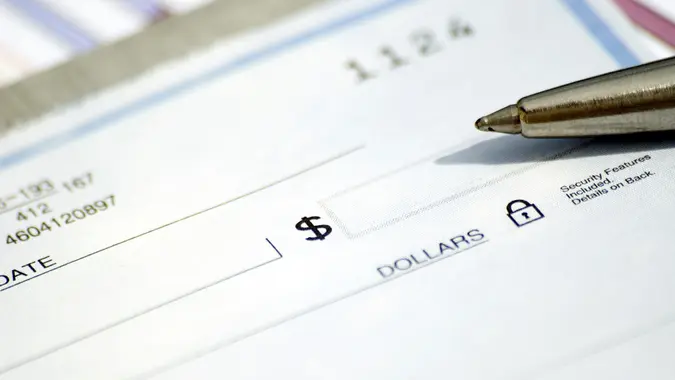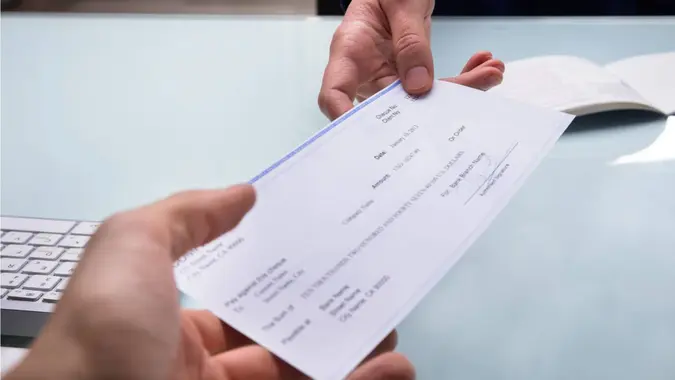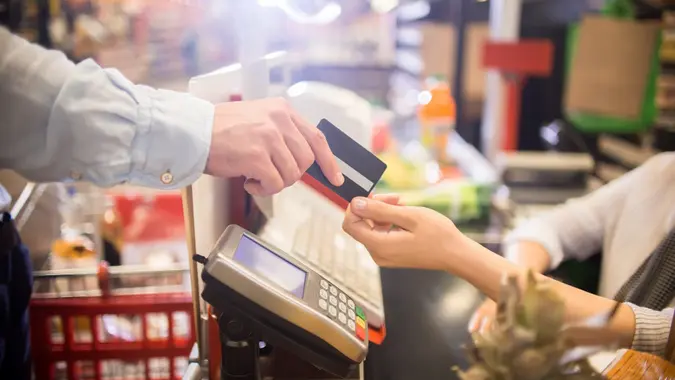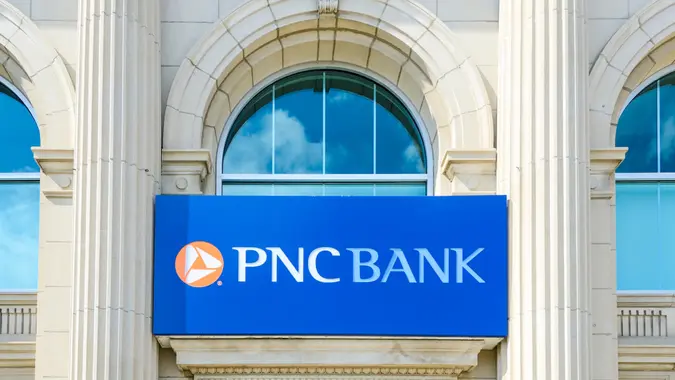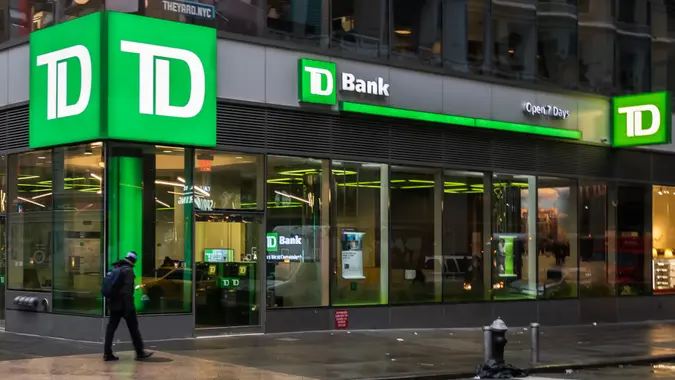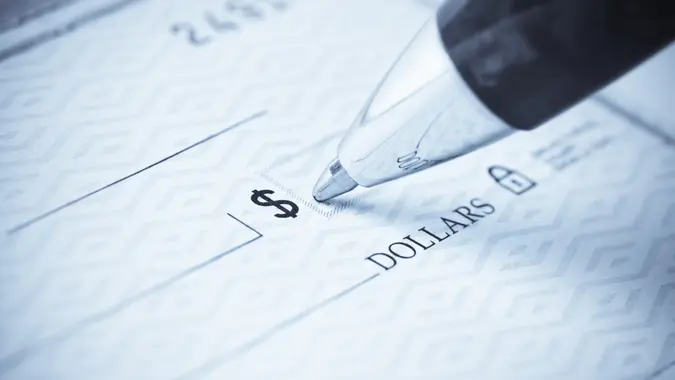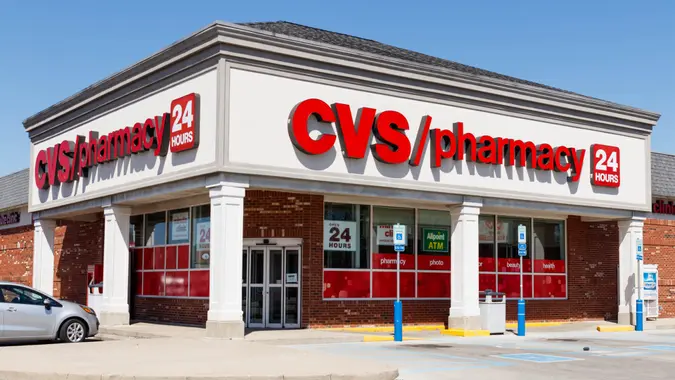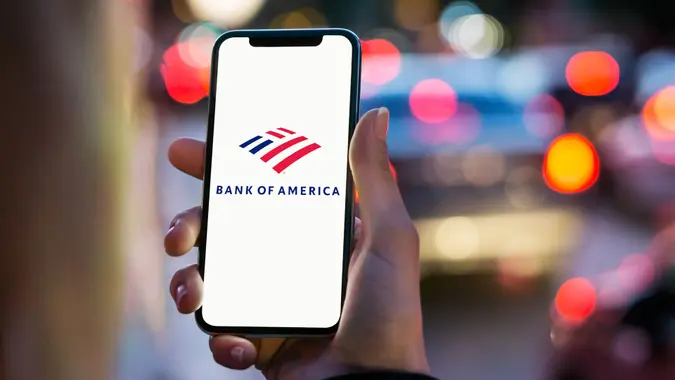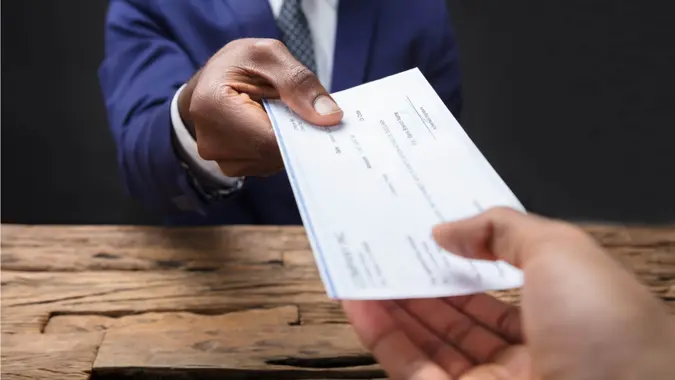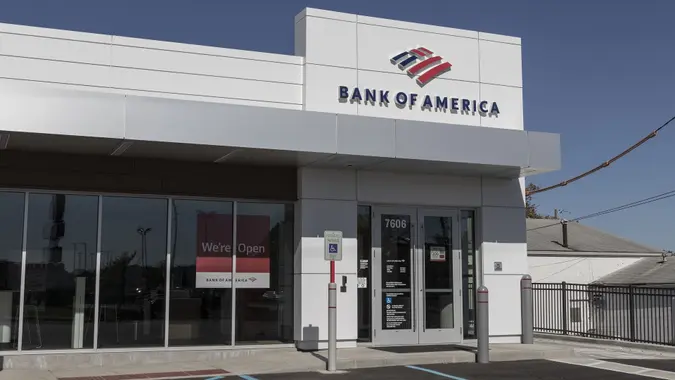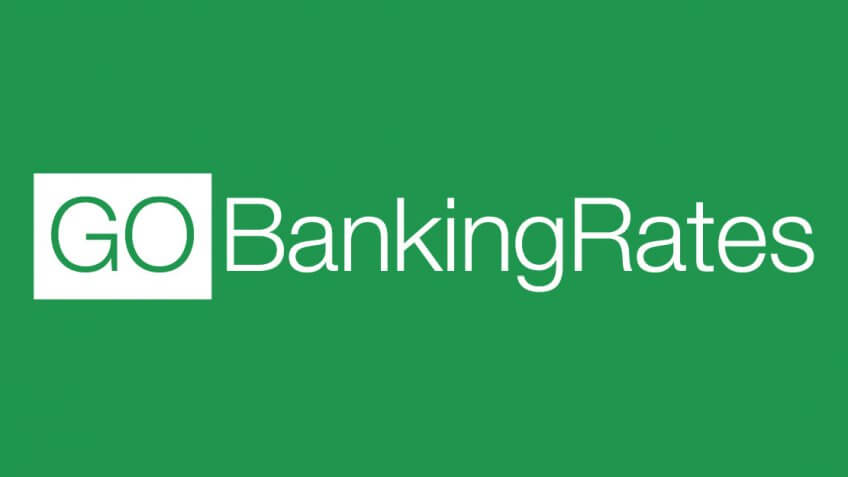Explaining the Difference Between Different Types of Checks

Commitment to Our Readers
GOBankingRates' editorial team is committed to bringing you unbiased reviews and information. We use data-driven methodologies to evaluate financial products and services - our reviews and ratings are not influenced by advertisers. You can read more about our editorial guidelines and our products and services review methodology.

20 Years
Helping You Live Richer

Reviewed
by Experts

Trusted by
Millions of Readers
Debit cards and mobile payment options may be all the rage these days, but good old-fashioned checks still reign supreme in some corners of the banking world. And there is a surprisingly wide array of options. You’ve got your standard bank checks, your traveler’s checks, your certified checks — and nearly a dozen other types.
GOBankingRates spoke with Jessica Chase, a loan and finance expert at Premier Title Loans, to learn about all types of checks (there are 14 categories) and their respective purposes. We also briefly explored what the future of checks may be in an age increasingly devoted to the paperless convenience of digital.
1. Bank Checks: A bank’s check is the simplest form of a check and what we call the traditional check. They’re taken out and guaranteed on the bank’s own funds and are signed by their cashier. The person signing the check can make it payable to a third party and withdraw funds in their own name.
2. Payroll Checks: These checks are salary checks given by an employer to their employee for services rendered. They’re usually drawn on a company’s checking account.
3. E-Checks or Electronic Checks: E-checks are the digital versions of a simple bank check. They go through an Automated Clearing House to transfer funds from one account to another.
4. Traveler’s Checks: This check is always for a specific amount and serves as an alternative for hard cash. As the name suggests, travelers use it to buy goods when they’re not carrying cash. They can be exchanged for local currency at most banks.
5. Personal Checks: Personal checks are issued against an account holder’s own funds. The account holder fills in the payee information and the check isn’t authorized until it is presented at the bank.
6. Money Orders: Money orders are very much like regular checks but the difference is that they’re guaranteed by the bank and cannot bounce.
7. Certified Checks: A certified check is a type of check where the bank guarantees that the amount written is available in the issuer’s account, hence the “certified.”
8. Cashier Checks: A cashier’s check is also guaranteed by the bank’s own funds but the difference is that they’re much more secure and banks charge a higher fee for them.
9. Commercial Checks: Commercial checks are just like personal checks but for businesses and organizations. They’re issued against a company’s account and are used to pay their suppliers, vendors, etc.
10. Business Checks: A business check is any check written against a company’s checking account. For example, a payroll check is also a business check.
11. Government Checks: Any check that is written by the government for you is considered a government check. They usually cover aid, grants and tax refunds.
12. Tax Refund Checks: This is exactly what the title suggests. Taxpayers who receive a refund on their tax payments at the end of the tax year. The check they receive from the government is called a tax refund check.
13. Insurance Checks: When people file a claim with their insurance company against damages or for coverage, if approved, they receive a check for a dollar value of their claim. This check is called an insurance check.
14. Out-of-State Checks: An out-of-state check is any check that was issued in a different state than the one where it is being deposited or cashed.
So Many Checks Today, but Will It Always Be This Way?
With the consumer demand for seamless technology ever increasing, it’s worth wondering: Will this sundry assortment of checks remain relevant or will they be phased out? Most likely, checks will go bye bye in time, but we’re certainly not there yet.
“Banks will continue with the checking system as it is for the next decade because of its popularity with the elderly and organizations,” Chase said. “With fintech introducing new payments systems, the banking industry will be revolutionized. But banks are still hesitant to adopt these technologies because they tend to avoid risk. But when they do so, there is a high chance the current checking system will be overturned or entirely replaced.”
More From GOBankingRates
 Written by
Written by  Edited by
Edited by 



